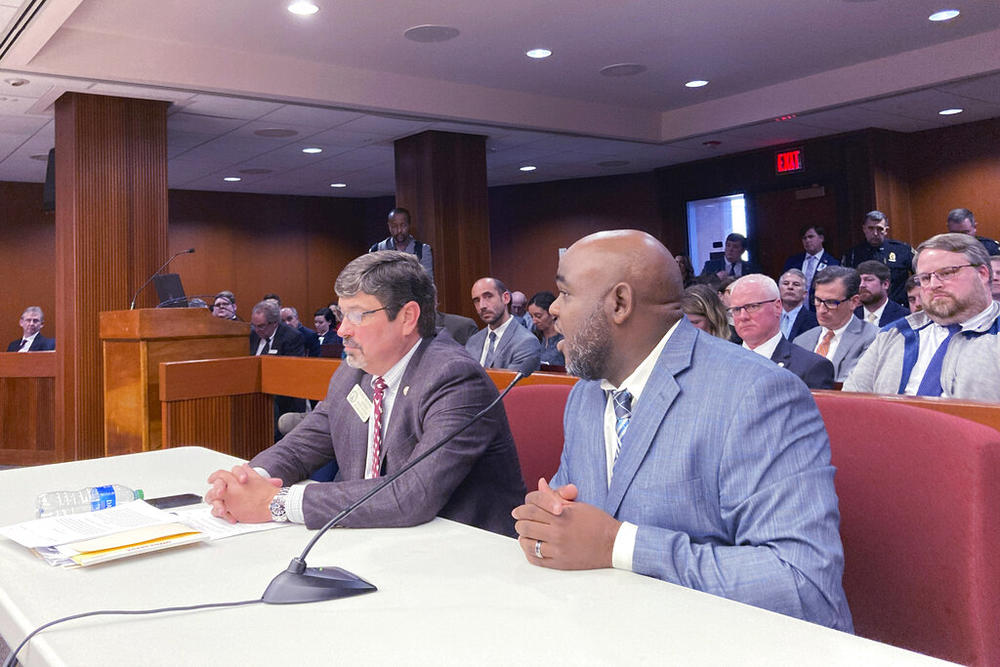
Caption
Logging company owner Toby McDowell of Locust Grove, Georgia, right, testifies in favor of higher weight limits on roads and bridges on Thursday, Feb. 9, 2023 at the state capitol in Atlanta. An industry-backed bill would raise truck weight limits in Georgia to 90,000 pounds.
Credit: AP Photo/Jeff Amy

